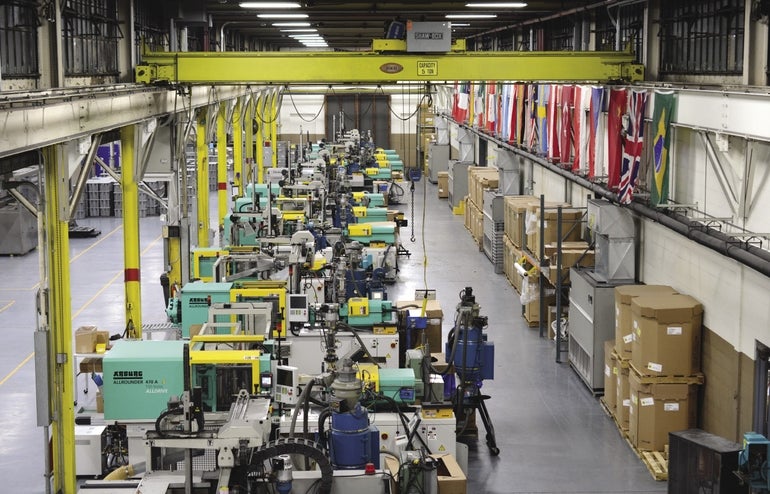The Massachusetts manufacturing industry received a C- rating in the 2020 Manufacturing Scorecard from Ball State’s Center for Business and Economic Research, according to a report released Tuesday.
This represents a small drop from 2019, when CBER in Indiana awarded Massachusetts a C rating.
Despite the decidedly average score, the state’s sub-scores varied widely. The state received top marks, for example, in the area of productivity and innovation, and also rose from a D+ to a C- in the area of sector diversification.
The Massachusetts overall score is relatively on par with the rest of New England. Maine, Connecticut and Vermont received C ratings; Rhode Island received a D.
The only states awarded an A from Ball State were Indiana, Kentucky, Michigan, South Carolina and Iowa.
On the other end of the spectrum were New Mexico, Montana, Alaska, Hawaii and New York, all of which received an F.
States were graded on a number of criteria, for which they were individually ranked, including logistics industry health, human capital, worker benefit costs, tax climate, expected fiscal liability, global reach, sector diversification and productivity and innovation.
Massachusetts scored the lowest in the logistics department, which measures how robust the state’s logistics industry is, under the premise that it is required to not only move goods but store inventory and manage distribution and processing, according to the report. Massachusetts received a D in that area.
The state also received a D for tax climate, for which Ball State pulled data on corporate taxes, income and sales and use taxes, property and unemployment insurance tax data.
However, Massachusetts did receive an A for productivity and innovation, which Ball State researchers determined based on manufacturing productivity growth, industry R&D expenditures on a per capita basis, and per capita number of patents issued annually.
Here is a breakdown of the Massachusetts C- score:
Logistics: D
Human capital: B-
Worker benefit costs: C
Tax climate: D
Expected fiscal liability: C
Global reach: B
Sector diversification: C-
Productivity and innovation: A

